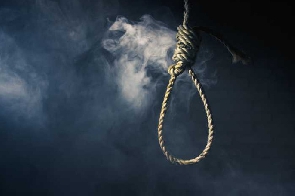A lecturer and psychologist, Samuel Ziggah, has argued that the decision by parliament to decriminalise suicide will be a recipe for disaster.
He opposed the argument for suicide to be classified as a mental health issue.
Parliament has amended sections of the Criminal Offenses Act of 1960, which makes attempting to take one’s own life a crime.
Following the amendment in Parliament on Tuesday, March 28, persons who attempt suicide will be considered as having mental health issues requiring assistance by law rather than imprisonment.
But reacting to this, the lecturer believes the amendment could serve as a recipe for disaster.
He stated that the amendment raises fundamental questions and several loopholes.
He claims that the vast majority of people who attempt or commit suicide are of sound mind and are not mentally unstable.
“When you look at those who opposed the decision to decriminalise and those who supported it, one thing stands out morally. You, as a sound man [referring to the host], have left home for work.
"Why should you even consider suicide, given how healthy you are? After that, you go to a shop to buy medicine to drink and kill yourself, or you buy a rope and hang yourself? You claim that people who attempt suicide have mental illnesses. But how could they have such thoughts?”
The bottom line is that the vast majority of people who commit suicide are rational. An example occurred at the university where I lecture. Exam results were posted on the bulletin board.
After reviewing his results, a student committed suicide because failing three papers meant expulsion in those days. So you’d say the person was mentally ill?”
Using the analogy of one pulling a gun on another and attempting to kill oneself, he quizzed why the latter would be described as a mental problem but the other criminal.
“We’re pretending to be foreigners and doing all sorts of things. “What they’ve done has opened the floodgates to disaster,” he warned when he spoke with Kwabena Agyapong
Crime & Punishment of Friday, 31 March 2023
Source: rainbowradioonline.com

















